Tommy's National Centre for Miscarriage Research: three months in
29/07/2016
In April 2016, Tommy’s fulfilled one of our biggest ambitions: to open a research centre dedicated to miscarriage. It is the largest centre of its kind in Europe and is a partnership of 3 universities: The University of Birmingham, The University of Warwick, and Imperial College London.
Miscarriage is by far the biggest cause of pregnancy loss in the UK, but it is also the least understood. Approximately 200,000 mums and their partners are affected every year, with 85% of miscarriages occurring within the first 12 weeks of pregnancy. Parents often receive no answers when it happens; a heart-breaking situation that can lead to a spiral of distress and worry as they debate: should I try again? Will it happen again? How will I know?
The centre will help nearly 24,000 women a year .
“I know there are answers out there which can give women like me hope. The hardest thing for me throughout the miscarriages (apart from the obvious of course) was not knowing why. And not knowing why meant I felt hopeless. I was very fortunate that I got the answers that helped me go on to have my beautiful girl, but my heart goes out to all those women who may not be as fortunate.”
Feedback from a mum at our Birmingham centre
Now 3 months after the centre has launched we look at how our researchers are getting on and what they’re setting out to achieve…
In the first 3 months of the Tommy’s Miscarriage Centre the team have been gearing up to deliver the planned research projects into why miscarriage happens, and what treatments we can develop to prevent it. This means there’s been lots of rigorous ethical applications, refining technical details of studies, recruiting patients and recruiting key staff such as Tommy’s midwives and PhD students.
Some of our vital research projects have begun! In Warwick, we have completed the expression profile of a gene called DPP4. We think this gene is likely to be connected to recurrent miscarriage. We have been able to measure its activity in cell cultures and in the endometrium (the inner layer of a woman’s uterus).
The next stage of the study will be exploring whether preventing some of DPP4’s activity could help prevent recurrent miscarriage. If it does, this could help us develop a treatment for women to prevent miscarriage before they even become pregnant – a potentially ground breaking development.
Down in London, our study into how early events in pregnancy (the EPOS study) affect miscarriage has shown some exciting early findings. We’ve recruited over 1100 women to the trials and our discoveries are currently being validated. We hope to be able to share this information later this year: watch this space.
In Warwick, we are also trialling a treatment of ‘endometrial scratch’ to see if this helps women experiencing recurrent miscarriage. When a woman is pregnant, her endometrium has to undergo a process called dicidualisation. This is so that the egg can implant in her womb.
However, sometimes the endometrium doesn’t change in the way that it ought to. This makes the uterus an unsuitable place to grow a fetus. We’ve found that if we ‘scratch’ a woman’s endometrium using an instrument called a Pipelle catheter, it can stimulate dicidualisation, making the uterus ready to accept and grow an egg into a healthy baby instead of miscarrying.
There’s been several trials already which show that a scratch helps improve outcomes for women going through IVF, but no tests yet for women with a history of miscarriage…until now! We are also using samples from this study to develop a test that predicts whether someone’s next pregnancy is likely to end in miscarriage or a full term baby.
Mental health is also a really important part of the miscarriage centre. We have recruited 920 women to our study into the psychological impact of miscarriage. We are finding that many women across the country are hearing about our work through the Tommy’s website, in the press or by word of mouth and contacting us to ask if they can participate, which is wonderful news.
Meanwhile, our clinicians and nurses are working closely with patients and patient groups to inform and improve miscarriage care. Birmingham Women’s Hospital is hosting monthly peer support groups for those affected by pregnancy loss where women who have experienced loss come together and share how they are feeling and coping. Birmingham is also undertaking co-design work with the local Family and Patient Advisory Council. Co-design is a technique to improve and enhance healthcare services for patients and their families. It prioritises listening to patients to ensure they have better experiences of healthcare, and helping develop better healthcare services.
Tommy’s miscarriage centre researchers have also been speaking at national professional events to explain our work so far. These have included the RCOG (Royal College of Obstetricians and Gynaecologists) World Congress in June, where the Tommy’s team spoke about:
• why the guidelines for diagnosis of miscarriage had to change;
• how to break bad news and being compassionate to women experiencing early pregnancy loss; and
• early pregnancy scanning for safe diagnosis of miscarriage.
There has been some fabulous work so far and there is still so much more to come – stay tuned for more regular updates!
For referral
The first step is to visit your GP.
The NHS follows guidance which is set out in NICE guidelines and these say that the GP should refer you after you have had three miscarriages. Most doctors realise that this can cause considerable distress to women and many hospitals will investigate after two miscarriages.
After one miscarriage most women go on to have a healthy pregnancy, so it is unlikely you will be referred for further investigation after one miscarriage.
Talk to your GP, explain how you are feeling and ask to be referred as soon as possible.
To be referred to a Tommy’s miscarriage clinic, ask to be referred to a named Tommy’s unit when you visit your GP. The clinics are based at the following sites:
- Birmingham Women's Hospital
- University Hospital Coventry
- Queen Charlotte's & Chelsea Hospital and St Mary's Hospital, London
The names of the leading clinicians at our clinics can be found here.
One of the benefits of doing this is that you will be offered entry into a research study which may trial the latest tests and/or treatments.
The three sites will run specialist clinics enabling over 24,000 women per year to access treatment and support, and participate in Tommy’s research studies.
Meet the team
We have asked our new team what the new centre means to them and what they hope to achieve.
Professor Arri Coomarasamy, Director of Tommy’s National Centre for Miscarriage Research, at the University of Birmingham:
"Miscarriage is a common but deeply personal and often isolating experience for many couples. Tommy's #misCourage campaign is beginning to provide clear evidence on the widescale devastation it causes. At the new Tommy's National Centre for Miscarriage Research, we are determined to make a difference. The scientists and the clinicians from the three universities and the four trusts constitute a world class team. We are committed to understand the causes of miscarriage and find ways to prevent it. Tommy's investment in the new Centre is the best thing that has happened to miscarriage research. It will change many lives."
Professor Siobhan Quenby, Professor of Obstetrics and Honorary Consultant at University Hospitals Coventry and Warwickshire and the University of Warwick:
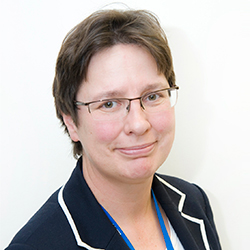
"I am excited to be part of the first national research centre dedicated to early miscarriage. It is also the first time that we will work together. The Tommy's National Miscarriage Research Centre gives us the best opportunity to date of ending the heartache for thousands of women and their families. I am confident that a cure for miscarriage is now within reach."
Professor Phillip Bennett, Director of the Institute for Reproductive and Developmental Biology at Imperial College London:
"As a doctor, I wish I could give my patients the answers they are looking for. We have the expertise, the technology and the drive, but we need more funding. Tommy's National Centre for Miscarriage Research gives us a real opportunity to make significant breakthroughs in early miscarriage."
Professor Lesley Regan, Director Recurrent Miscarriage ad Early Pregnancy Service at Imperial College London:
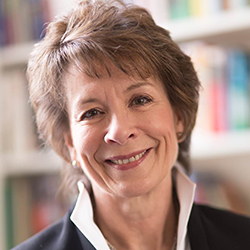
"So often my miscarriage patients have looked at me asked “Why did this happen to me?” The Tommy’s National Miscarriage Centre offers us the opportunity to combine the skills of many experts in miscarriage.
Working together we will be able to provide many more answers and solutions for our patients."
Professor Tom Bourne, Adjunct Professor, Imperial College, London:
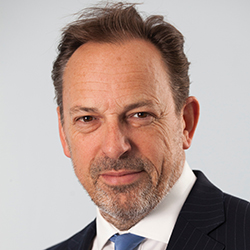
"The new Tommy’s centre is a really exciting development for us. In academic medicine a major hindrance is the inability to plan ahead and so know we can attract and keep the best research talent. The model that Tommy’s use - funding centres rather than short-term projects, will enable us to do this for the first time.
It was clear to all of us that the synergy that could be created by the three universities coming together to create a joint national centre would be the ideal scenario. By working together we are truly a case of the 'whole being greater than the sum of its parts' as we combine excellence across several key areas including important areas of basic science, running clinical trials, and diagnostics."
Professor Jan Brosens, chair of Obstetrics and Gynaecology at the University of Warwick:
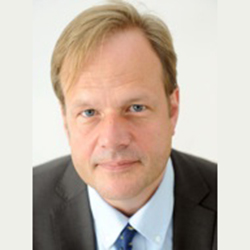
"Like our patients, I have been frustrated by the lack of real progress in the prevention of miscarriages. Although our understanding of early pregnancy has increased phenomenally in recent years, effective tests and treatments are as yet lacking. This centre, which is unique in the world, will deliver for thousands of couples."
Dr David Lissauer, Senior Clinical Lecturer in Obstetrics and Gynaecology, University of Birmingham:
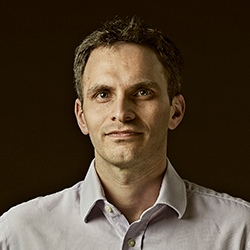
"The Tommy’s centre is such an important development as it is going to help us provide more couples with an explanation about exactly why their pregnancy unfortunately ended in miscarriage. This will be key to developing new treatments."
Read more miscarriage support
-
Read more about 'A conversation with Liberty's Mother '
A conversation with Liberty's Mother
-
Read more about 'Your views needed for Nobody's Patient '
Your views needed for Nobody's Patient
-
Read more about '‘Today is the day my sweet son, Johnathan Edward, was due’ '
‘Today is the day my sweet son, Johnathan Edward, was due’
-
Read more about 'Black Baby Loss Awareness Week 2023 '
Black Baby Loss Awareness Week 2023
-
Read more about 'Jeremy Hunt pledges preterm birth reduction from 8-6% by 2025 '
Jeremy Hunt pledges preterm birth reduction from 8-6% by 2025
